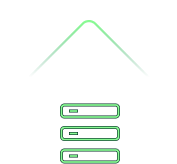TeleShield Case Study
Providing a real-time customer liveness check that allows you to check which mobile numbers are no longer active
Rread case study >TeleShield is a powerful telephone fraud prevention API which protects both your business and your genuine customers. It provides robust and dependable security against a range of telephone-based fraudulent activities such as flash calls, International Revenue Share Fraud (ISRF), Origin Based Rating (OBR), ‘Wangiri’ scams, premium rate number fraud, telephone number spoofing and more.

The service is based on live access to authoritative global data and can be easily integrated into your business processes with the option of standard or enhanced insights into numbers’ history and integrity. This allows users to detect telephony and telecommunications fraud – and protect themselves from it. Which in turn is a means to achieving a reputation for reliability from customers

Our integrated full number range plan has mapped all allocated and available number ranges to operators for every country in the world. So even if a number is not in our portability database (because it has not been ported), we can still return the correct routing information.




OBR fraud, involving telephone number spoofing, occurs when a fraudster replaces the originating number to exploit lower call termination rates. TeleShield prevents such scams by identifying invalid calling numbers, avoiding surcharges. It can even retrospectively detect attacks, enabling you to pass surcharges back to the call originator

IRSF fraud poses a significant threat to businesses, involving costly attacks using premium rate numbers. TeleShield safeguards against this by identifying and eliminating fraudulent premium rate numbers from the callback process, preventing potential financial losses

Providing a real-time customer liveness check that allows you to check which mobile numbers are no longer active
Rread case study >
Telephony fraud is the act of making money illegally from a communication service provider or its customers by through the use of telecommunications services. Telephony fraud can take many forms, for example, infiltrating a telephony network or using rogue operators to redirect calls/texts to international premium rate number, among others.
Phone number verification plays an essential role in the detection and prevention of telephone fraud. It includes analysis of mobile and fixed phone numbers, with the goal of identifying phone attributes that contribute to assessing the fraud risk for a number. This includes whether the number service type is suspicious or if it is part of a high risk range.
Our number range information is the most comprehensive and up-to-date offered. It includes global, coverage, including 240 countries and territories worldwide.
Yes. The Global Number Range plan is a critical component of our data infrastructure. We utilize our number range data for the processing of billions of queries monthly. Given the importance of having accurate data, we have a dedicated team responsible for tracking of industry numbering changes, as well as the proactive update of the countries, according to strict SLAs. This includes daily review and subsequent update of the data with operator posted IR21s and ITU changes, as well as working with operators to clarify changes that do not appear to be correct.
We provide comprehensive device, network and mobile numbering data available.
Contact us > Chat to an expert >